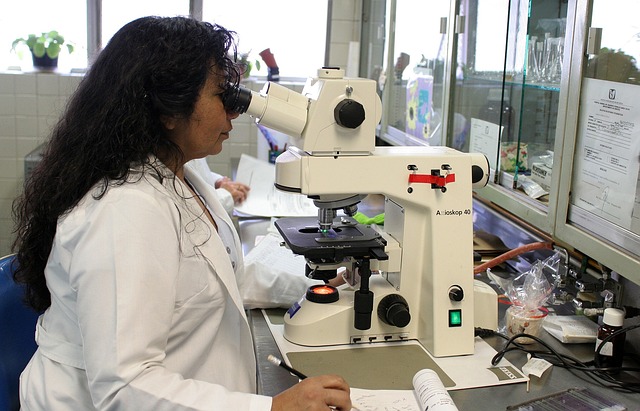AI Drug Discovery Startups: Analysis Of Exscientia’s Acquisition By Recursion

Photo Credit: Ernesto Eslava from Pixabay
A European player looking to make a difference in the high growth AI-drug discovery market is Exscientia. Like others in the industry, it has an interesting story to tell. After a brief listing on the stock market, Exscientia was acquired by another AI-based biotech firm last year.
Exscientia’s Offerings
The idea behind Exscientia came to its founder Andrew Hopkins, a PhD biophysics student at Oxford University, in 1996 when he was returning from a late-night lab meeting. At his lab, the team was working on finding molecules to fight HIV and to better understand drug resistance.
On the walk back, he thought that there had to be an easier and less expensive way to discovering drugs. He wanted to figure out if there could be an “automated approach to drug design that would use all the information in parallel so that even a humble PhD student could create a medicine?” That thought led him to setting up Exscientia.
By 2012, Hopkins had moved over as a professor to the University of Dundee. It was here that he spun-off Exscientia to use AI systems that were being trained to copy human creativity and develop new medicines. Like other AI drug discovery engines, Exscientia’s AI uses large datasets to design compounds that can treat diseases and helps select the right patients for each treatment.
By following an advanced algorithm-based approach, AI drug discovery companies are able to not only cut costs, but also reduce time significantly in the drug discovery process. Exscientia is no different. Its AI-focuses on improving the probability of success of its compounds. It has built an end-to-end solution for target identification, drug candidate design, translational models, and patient selection.
Its platform has helped create candidate drug molecules that have progressed into clinical trials. One of its AI-designed molecules entered clinical trials in under one year.
Recently, Exscientia opened an automated discovery laboratory, a facility that integrates AI design methods with chemical synthesis and biological testing. The integration will further increase efficiencies in the drug design process and improve the rate of learning of Exscientia’s generative design platform.
Last year, Exscientia also scaled back several of its R&D activities to focus on cancer related drugs. It also entered into several multi-year contracts with other big pharma companies like Merck KGaA and Sanofi for several other small molecule projects.
Exscientia’s Financials
Exscientia was privately held until 2021. It had raised $833 million in venture funding from investors, including Bill & Melinda Gates Foundation, Novo Holdings, SoftBank Vision Fund, Evotec, Open Philanthropy, Blackrock Innovation Capital Group, RA Capital Management, Flagship Pioneering, Wellington Management Company, Viking Global Investors, Mubadala Investment Company, Farallon Capital, and GT Healthcare Capital. In 2021, the company went public on the Nasdaq with a $2.9 billion valuation, making it one of the biggest floats by a European biotech player.
Last November, Exscientia was acquired by Recursion for an estimated $688 million. Salt Lake City-based Recursion is a clinical-stage biotech company that is also attempting to industrialize drug discovery. Its platform Recursion Operating System (OS) has been built across diverse technologies that leverages machine-learning algorithms to distill from its dataset a collection of trillions of searchable relationships across biology and chemistry unconstrained by human bias.
Post the acquisition, Recursion will have one of the largest AI-based pipelines in the industry. The combined pipeline does not have a lot of overlap as Exscientia focuses on cancer drugs, and Recursion on rare diseases.
Recursion believes the merger would integrate its “scaled biology exploration and translational capabilities with Exscientia’s demonstrated precision chemistry tools and capabilities, including its newly commissioned automated small molecule synthesis platform.” Prior to the acquisition, Exscientia had recorded a full year revenue of $3.1 million with a net loss of $0.42 per share.
Despite the high potential of AI in the industry, valuations across the board appear to be falling. Exscientia’s stock price fell from a high of $21.97 in October 2021 to $4.68 in August 2024.
Additionally, Recursion itself has had a few tough stock price movements. It has fallen from its 12-month high of $15.74 to $6.53 as of late. The valuation decline is driven by the stock market’s skepticism about AI’s impact on drug discovery, especially considering the risks and typical long timelines associated with clinical trials. But with so many players and compounds in the pipeline, it is only a matter of time before one of them cracks the code.
More By This Author:
AI Drug Discovery Startups: Atomwise Focuses On AI-Based Small Molecule Discovery
AI Drug Discovery Startups: Could Insilico Medicine Release The First Drug To Be Discovered By AI?
AI Drug Discovery Stocks: Recursion Pharmaceuticals Has A Long Road Ahead



